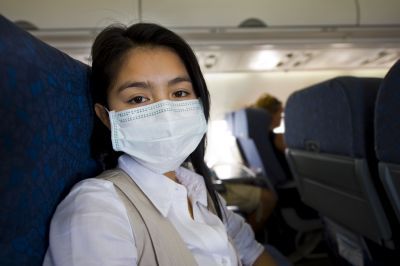WHO scientists decide if flu pandemic has passed peak

Your support helps us to tell the story
From reproductive rights to climate change to Big Tech, The Independent is on the ground when the story is developing. Whether it's investigating the financials of Elon Musk's pro-Trump PAC or producing our latest documentary, 'The A Word', which shines a light on the American women fighting for reproductive rights, we know how important it is to parse out the facts from the messaging.
At such a critical moment in US history, we need reporters on the ground. Your donation allows us to keep sending journalists to speak to both sides of the story.
The Independent is trusted by Americans across the entire political spectrum. And unlike many other quality news outlets, we choose not to lock Americans out of our reporting and analysis with paywalls. We believe quality journalism should be available to everyone, paid for by those who can afford it.
Your support makes all the difference.The World Health Organisation's emergency committee of scientists was due to meet on Tuesday to decide whether the swine flu pandemic has passed its peak.
The step would mark the first formal recognition that the worst is over since the UN health agency declared a global pandemic last June and emergency precautions swung into action worldwide.
The confidential teleconference headed by Australian infectious diseases expert John Mackenzie followed signs over the past months that the A(H1N1) flu was tailing off in most parts of the world.
"What we are hoping for is that the worst is behind us," Keiji Fukuda, Special Adviser to the WHO Director-General on Pandemic Influenza, said earlier this month.
However, WHO spokesman Gregory Haertl insisted that the trend did not mean the pandemic alert was over yet.
The meeting "has three issues on the agenda. The primary one is whether WHO should go to the post-peak phase," he told journalists.
"The post peak means basically the transition period where most countries have probably seen the peak of activity, but it doesn't mean that all countries have. We could still see additional waves" locally, Haertl added.
"So we are still not out of the pandemic, this is still not behaving like a seasonal influenza virus."
The committee's recommendation is due to be made public on Wednesday, after health ministries in the WHO's 193 member states plus the Vatican are directly informed by Director General Margaret Chan.
The move would help national health authorities recalibrate their flu planning and strategy, officials said.
Several countries have been running down their costly special pandemic flu precautions in recent weeks, while new recommendations issued by the WHO for later this year incorporate the A(H1N1) virus into seasonal vaccines.
Nearly 16,000 people have died worldwide from the new A(H1N1) strain after it spread into 212 countries and overseas territories since it was uncovered in Mexico and the United States in April 2008, WHO data showed.
Overall, swine flu was declining in most of the northern hemisphere, except for recent reported increases in West Africa.
The 15 member emergency committee of specialists, chaired by professor Mackenzie, provides the WHO chief with definitive scientific guidance on severe health threats .
pac/at/ss
Join our commenting forum
Join thought-provoking conversations, follow other Independent readers and see their replies
Comments